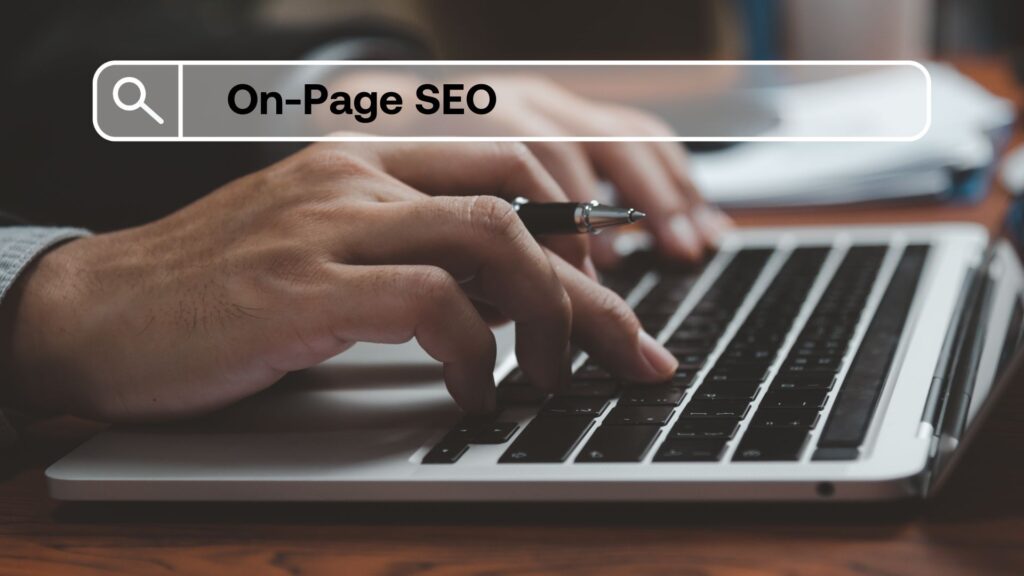On-Page SEO: The Ultimate Guide to Optimizing Your Content
On-page SEO remains a critical factor for ranking success in 2024. In this comprehensive guide, you’ll learn proven techniques to optimize your content and boost your search visibility. From crafting compelling titles to satisfying user intent, we’ll cover everything you need to know to master on-page SEO.
What is On-Page SEO?
On-page SEO refers to the practice of optimizing individual web pages to rank higher and earn more relevant traffic in search engines. It involves optimizing both the content and HTML source code of a page.
Some key elements of on-page SEO include:
- Title tags and meta descriptions
- Header tags (H1, H2, H3, etc.)
- URL structure
- Internal linking
- Content quality and relevance
- Page loading speed
- Mobile-friendliness
Why is On-Page SEO Important?
Effective on-page optimization helps search engines understand your content and determine whether it’s relevant to a searcher’s query. It also improves user experience, which can lead to better engagement metrics and higher rankings.
Some key benefits of on-page SEO include:
- Improved search engine rankings
- Higher click-through rates from search results
- Increased organic traffic
- Better user experience and engagement
- Higher conversion rates
Optimize Your Title Tags and Meta Descriptions
Title tags and meta descriptions are critical on-page elements that appear in search results. Optimizing them can significantly impact your click-through rates.
Title Tag Best Practices:
- Keep it under 60 characters
- Include your primary keyword near the beginning
- Make it compelling and relevant to the searcher’s intent
- Use power words to evoke emotion
Meta Description Best Practices:
- Keep it under 160 characters
- Include your primary keyword
- Provide a clear, concise summary of the page content
- Include a call-to-action to encourage clicks
Create High-Quality, Valuable Content
Content is king in SEO. To rank well, your content must be unique, informative, and aligned with user intent.
Content Best Practices:
- Focus on topics your audience cares about
- Provide in-depth, comprehensive coverage
- Include relevant keywords naturally throughout the content
- Use headings and subheadings to structure your content
- Incorporate images, videos, and other media to enhance engagement
Optimize Your URL Structure
A clean, descriptive URL structure can improve both user experience and search engine optimization.
URL Best Practices:
- Keep URLs short and descriptive
- Include your target keyword
- Use hyphens to separate words
- Avoid unnecessary parameters or session IDs
Implement Internal Linking
Internal linking helps search engines understand your site structure and passes link equity to important pages.
Internal Linking Best Practices:
- Use descriptive anchor text
- Link to relevant, high-value pages
- Ensure a logical site structure
- Use a reasonable number of internal links
Optimize Images for SEO
Images can enhance user experience and provide additional ranking opportunities through image search.
Image Optimization Best Practices:
- Use descriptive, keyword-rich file names
- Add alt text to all images
- Compress images to improve page speed
- Use responsive images for mobile devices
Improve Page Speed
Page speed is a ranking factor for both desktop and mobile searches. Fast-loading pages provide a better user experience and can lead to higher rankings.
Page Speed Optimization Tips:
- Minimize HTTP requests
- Enable browser caching
- Compress and optimize images
- Minify CSS, JavaScript, and HTML
- Use a content delivery network (CDN)
Optimize for Mobile
With mobile-first indexing, it’s crucial to ensure your site is fully optimized for mobile devices.
Mobile Optimization Best Practices:
- Use a responsive design
- Ensure text is readable without zooming
- Make buttons and links easy to tap
- Avoid using Flash or other non-mobile-friendly technologies
Use Schema Markup
Schema markup helps search engines understand your content better and can lead to rich snippets in search results.
Schema Markup Tips:
- Implement relevant schema types for your content
- Use Google’s Structured Data Testing Tool to validate your markup
- Focus on schema types that can generate rich snippets
Monitor and Analyze Your Results
Regularly monitoring your SEO performance is crucial for ongoing optimization.
SEO Monitoring Best Practices:
- Track your rankings for target keywords
- Monitor organic traffic and engagement metrics
- Use tools like Google Search Console and Google Analytics
- Conduct regular site audits to identify issues
Conclusion
On-page SEO is a fundamental aspect of any successful SEO strategy. By implementing these best practices, you can improve your search visibility, drive more organic traffic, and provide a better experience for your users. Remember that SEO is an ongoing process, so continually monitor your results and refine your approach for the best outcomes.
FAQs
How long does it take to see results from on-page SEO?
The timeframe for seeing results can vary depending on factors like your site’s authority, competition, and the extent of your optimizations. Generally, you may start seeing improvements within a few weeks to a few months.
Is keyword density still important for on-page SEO?
While keyword density is no longer a critical factor, it’s still important to use your target keywords naturally throughout your content. Focus on creating high-quality, relevant content rather than hitting a specific keyword density.
How often should I update my on-page SEO?
On-page SEO should be an ongoing process. Regularly review and update your content to ensure it remains relevant and valuable. Conduct thorough audits at least quarterly to identify and address any issues.
Can I do on-page SEO myself, or should I hire a professional?
Many aspects of on-page SEO can be handled by site owners with some research and learning. However, for more complex issues or if you’re short on time, working with a professional SEO agency like IncRev can be beneficial.
How does on-page SEO differ from off-page SEO?
On-page SEO focuses on optimizing elements within your website, while off-page SEO involves activities outside your website, such as link building and social media marketing. Both are important for a comprehensive SEO strategy.

